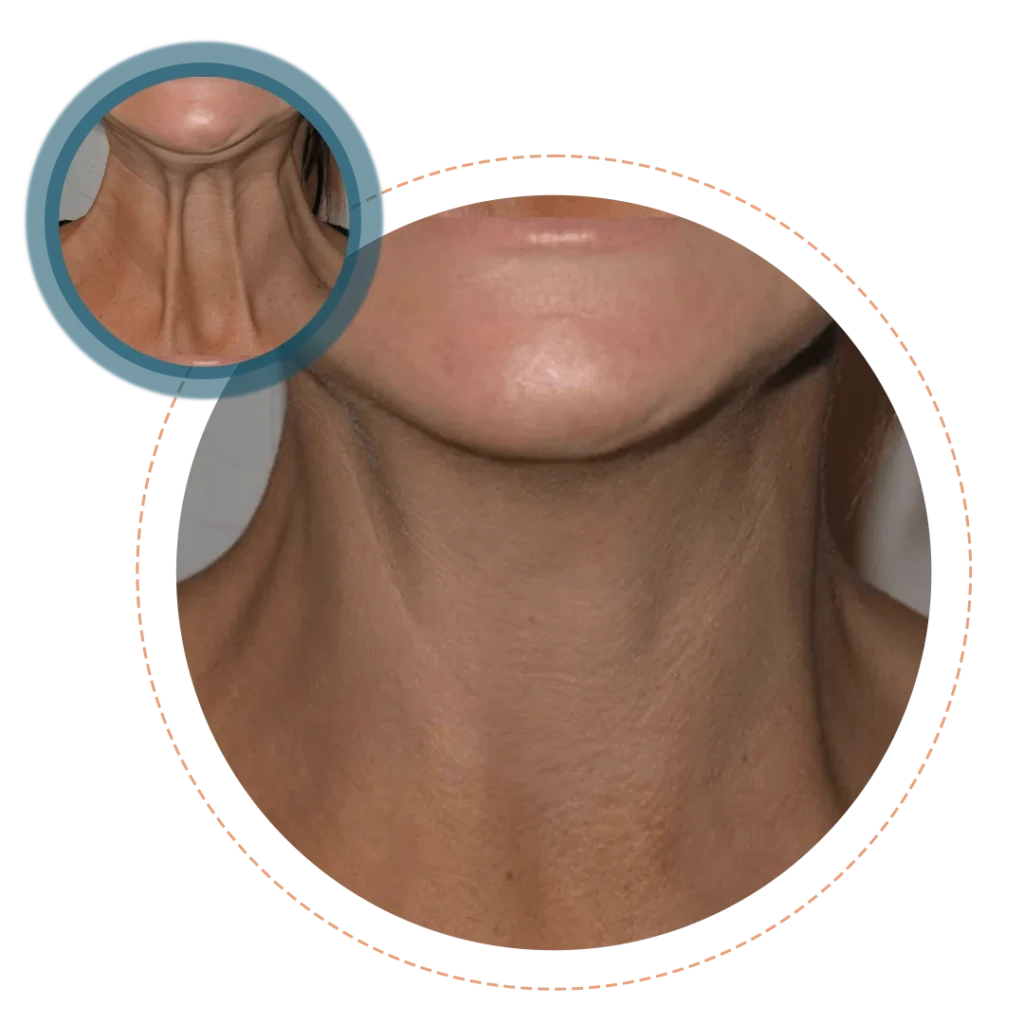
What is Platysma Band Correction ?
Overview Platysma band correction is a cosmetic procedure aimed at addressing the appearance of visible platysma bands in the neck. These bands become more pronounced as we age, resulting in a less defined jawline and an older-looking neck. Platysma band correction tightens or adjusts the neck muscles to create a smoother and more youthful neck contour. This procedure is often combined with a neck lift for enhanced results.
Causes The formation of platysma bands is primarily caused by aging, where the platysma muscle in the neck loses its elasticity, leading to vertical lines or bands. Weight fluctuations and genetics can also contribute to the prominence of these bands.
Solutions Platysma band correction involves tightening the platysma muscle through small incisions behind the ears or under the chin. This results in a smoother neck appearance and a more defined jawline. By addressing the underlying muscle, this procedure can significantly reduce the visible signs of aging in the neck.
Types of Treatments

Neck Lift with Platysma Plication
Involves tightening the platysma muscle and removing excess skin for a more contoured neck.

Face Fat Grafting
Used to temporarily relax the platysma bands, providing a non-surgical option for improvement.
Hands and Feet Fat Grafting
Fat grafting to the hands and feet improves their appearance by restoring volume and reducing the visibility of veins and tendons. This treatment rejuvenates the hands and feet, giving them a more youthful and smoother look.
Surgery Procedures and Recovery Time
Procedure Fat grafting surgery begins with the extraction of fat from a donor area through liposuction. The harvested fat is then purified to remove any impurities, such as blood or oils. Once purified, the fat is carefully injected into the target area in small amounts to ensure even distribution and natural-looking results. The procedure is typically performed under local anaesthesia with sedation or general anaesthesia, depending on the extent of the treatment.
Recovery Recovery from fat grafting varies depending on the treated area and the amount of fat transferred. Generally, patients can expect some swelling, bruising, and discomfort in both the donor and recipient sites. These symptoms typically subside within a few weeks. Most patients can return to light activities within a week, but strenuous activities should be avoided for at least four to six weeks. Full results are usually visible after several months as the transferred fat integrates with the surrounding tissues.
Video About Treatment
FAQ
Fat grafting is a cosmetic procedure that involves transferring fat from one part of the body to another to enhance volume and contour.
The duration of the procedure varies but typically takes between 2 to 4 hours, depending on the extent of the treatment.
The cost of fat grafting can vary widely, ranging from ₹50,000 to ₹200,000, depending on the treatment area and the surgeon’s experience.
Common side effects include swelling, bruising, and discomfort at the donor and recipient sites. Serious complications are rare but can include infection and fat embolism.
Initial recovery takes about 1 to 2 weeks, but full recovery can take several months as the swelling subsides and the fat integrates.
Yes, fat grafting is suitable for both men and women looking to enhance their body contours or facial features.
Fat grafting treatments include buttocks, breast, face, hips, hands, and feet fat grafting, each targeting specific areas for enhancement.
Fat grafting is generally safe when performed by a qualified and experienced surgeon. As with any surgery, there are risks, but they are minimized with proper care.
Preparation includes undergoing medical evaluations, avoiding certain medications, stopping smoking, and following the surgeon’s pre-operative instructions.
Expect some swelling and discomfort, which can be managed with medication. Following the surgeon’s post-operative care instructions is crucial for optimal results.